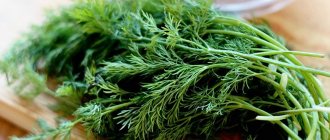Inflammation of the stomach occurs as a result of poor nutrition, poor environment, constant stress, or infection with the bacterium Helicobacter pylori. Many patients are concerned about the use of kefir for gastritis, because this drink is not aggressive to the mucous membrane, but can aggravate the unpleasant symptoms of the disease. Let's try to understand its benefits and harms for inflammation of the stomach.
The lactic acid drink is rich in bifidobacteria, which improve intestinal microflora and help improve the condition of the gastrointestinal tract. There is an opinion that kefir helps get rid of gastritis, but in combination with medications. Is this true, and what do qualified specialists think about this issue?
Benefits of the drink
Kefir is a product unique in its composition. For its production, cow's milk and a special fungal starter are used, which is responsible for the microorganisms inhabiting it. In general, the milk drink consists of 20 types of beneficial fungi and bacteria that have a beneficial effect on the internal microflora.
It has the following beneficial properties:
- normalizes metabolism;
- increases immunity;
- has a mild diuretic property;
- antiseptic.
The drink has a positive effect on the health of the intestines and stomach, since it contains the following microelements:
- vitamins of groups A, B, C, H;
- iron, iodine, fluorine and manganese;
- phosphorus, calcium, potassium.
You can also drink kefir for gastritis and duodenal ulcers because it is quickly absorbed by the body and does not cause heaviness. On the contrary, the drink helps speed up digestion.
Beneficial features
The benefits of kefir and other fermented milk products are widely known. This product contains beneficial microorganisms that help maintain healthy microflora in the gastrointestinal tract. Useful properties of kefir:
- the drink normalizes the microflora of the digestive system;
- strengthens local and general immunity;
- restores normal metabolism;
- restores vascular tone;
- normalizes blood sugar, that is, it is an excellent prevention of the development of diabetes;
- saturates the body with calcium;
- reduces the effect of aggressive factors on the gastric mucosa, making kefir especially useful for inflammatory diseases of the stomach.
General rules of use
It's no secret that almost all gastrointestinal diseases are treated with diet. Light, small meals will speed up the healing process and relieve unpleasant symptoms. Is it possible or not to include kefir in the list of healthy products? Gastroenterologists claim the healing properties of the drink, placing virtually no restrictions on the volume consumed.
Gastritis is fraught with the danger of digestive disorders, which causes dysbiosis, flatulence and other unpleasant phenomena. The chronic form of the disease is characterized by a decrease in the body's protective barrier and the appearance of weakness. Beneficial bifidobacteria will tidy up the intestines and also kill pathogens.
- If you suffer from constipation due to a peptic ulcer, doctors recommend drinking kefir daily. It will quickly and gently cleanse the body of accumulated toxins. Due to its rapid absorption, the lactic acid drink will not cause you heaviness and pain after consumption. Along with it, you can eat soups, light salads, boiled meat and herbal teas.
- Remember that a one-day drink can be drunk only in the absence of an intestinal disorder, so as not to provoke an attack of diarrhea.
- People with low acidity of gastric juice should pay attention to three-day kefir. It eliminates pain and reduces inflammation. In other cases, it is best to drink a fresh product. Do not forget also that the concentration of ethyl alcohol depends on the maturity of the product.
- For diseases of the stomach and intestines, kefir should be chosen that is low-fat and non-acidic. Different levels of fat content and acidity are determined by the degree of lactic acid fermentation. If you choose your ideal drink incorrectly, heartburn may occur as a result of an imbalance. The best option for patients with high acidity and ulcers is one-day kefir with a fat content of 2.5%. This product reduces inflammatory symptoms.
- The average daily intake of the product is 200-400 ml. But this takes into account the fact that the gastroenterologist did not identify any contraindications.
Doctors have allowed the use of kefir for gastritis of the stomach. However, the required dosage must be selected individually. Drinking should be limited during periods of exacerbation and in case of problems with acidity. Unlike a drink with bifidobacteria, fermented baked milk is allowed even during an exacerbation. The only thing is that fermented baked milk should be low-fat up to 6%.
What diet is prescribed for exacerbation of gastritis
In case of exacerbation of gastritis with increased or normal secretion, diets of group No. 1 are used for the purpose of chemical and mechanical sparing of the stomach , accelerating the evacuation of food from it, and reducing the secretion of gastric juice.
In case of a sharp exacerbation in bed rest, diet No. 1a is indicated for 2-3 days. To enhance the anti-inflammatory effect, you can exclude table salt from your diet. Then the patient is transferred to diet 1b for 5 - 7 days, and subsequently to diet No. 1. After an exacerbation, the patient is on diet No. 1 for 1 - 2 months.
Next, a diet without mechanical, but with chemical sparing of the stomach is recommended - diet No. 5, and then diet No. 15. If chronic gastritis is complicated by damage to the liver and biliary tract, diet No. 5 is indicated, the dishes of which are prepared pureed.
In case of exacerbation of gastritis with increased or normal secretion, diets of group No. 1 are used for the purpose of chemical and mechanical sparing of the stomach
Patients with gastritis with increased acidity of gastric juice (hyperacid gastritis) and persistent heartburn are prescribed diet No. 1 with a limited amount of carbohydrates to 200 - 250 g and an increased (100 - 120 grams) protein and fat content (100 - 120 grams). After an exacerbation, such patients are recommended to diet No. 15, where the amount of proteins and fats is increased to 100 - 110 grams, and carbohydrates are limited to 300 - 350 grams per day - with frequent, split meals.
In case of exacerbation of gastritis with secretory insufficiency in combination with severe symptoms of intestinal damage (enterocolitis), diet No. 4 or 4b is desirable. After the elimination of acute phenomena, diet No. 2 or 4 is used.
In case of exacerbation of gastritis with secretory insufficiency, which combines disorders of the stomach, liver, biliary tract and pancreas, a particularly gentle diet is required - No. 5p or 5a, but adjusted for the content of proteins, fats and carbohydrates (taking into account damage to the pancreas) . In the remission stage, such patients are shown diet No. 5.
Kefir and forms of gastritis
Fermented milk drinks are not included in the prohibited list. Below we will consider whether kefir is indicated for gastritis with high acidity and duodenal ulcer:
- If you have high acidity, then consuming kefir will only worsen your condition. This is due to the fact that the product activates the fermentation process, which in turn irritates the gastric mucosa. This will complicate the patient’s condition, adding pain, nausea and even vomiting. Can't imagine your life without kefir? Try diluting it with water to reduce the acid percentage.
- If gastritis is accompanied by low stomach acidity, then the drink is recommended by gastroenterologists with almost no restrictions. It is best to drink kefir before bed. A natural product is recommended for consumption (ideally if it is prepared at home).
- The chronic form of gastritis involves daily consumption of kefir. If you don't like its pure taste, then add berries, pieces of fruit or a handful of finely chopped nuts. This can be done outside of periods of exacerbation.
- If you have erosive gastritis, drinking a lactic acid drink is strictly prohibited. It irritates the mucous membrane and provokes vomiting. When the disease begins to decline, it is allowed to consume daily kefir, which has a minimal percentage of fat content.
- Is it possible to drink kefir with atrophic gastritis? Yes, but only if you follow a special diet. It is noteworthy that the drink is permitted even during an exacerbation. Contact your doctor to give you his nutritional advice.
The issue of using kefir during an exacerbation period deserves special attention. After much research, experts agreed that a lactic acid product is acceptable, but in strictly limited doses and with a minimum percentage of fat, ideally low-fat.
Treatment option
Take this recipe, which is perfect for the prevention of gastrointestinal diseases:
- 1 glass of low-fat kefir;
- 1 tsp. unrefined oil.
Mix all ingredients and consume the mixture before bed. The course of such treatment is a week. The medicine is especially effective if you have an ulcerative form of the disease.
What dairy products are good for stomach ulcers?
Peptic ulcers and other chronic pathologies of the digestive system are characterized by a severe course, so attending physicians advise not to include milk in the diet during an exacerbation, it is better to wait for remission.
Increased stomach acidity often contributes to the development of ulcers. When creating a menu, patients should be guided by the list of products allowed for those who suffer from hyperacid gastritis. In other cases, the patient must take into account the recommendations given by the doctor.
For people with stomach problems, fermented milk and dairy products often form the basis of the entire diet. They should be included in the menu every day.
Kefir and ulcer
Kefir is allowed for use for stomach and duodenal ulcers. Preference should be given to a non-acidic product. How to take a drink when you are sick?
- An exacerbation of a duodenal ulcer is accompanied by pain, severe weakness, and nausea. This is why doctors recommend refraining from drinking kefir in the first 5-10 days of an acute condition. After the specified time, you can introduce the drink into your diet.
- A prerequisite is 0.05% fat and not too sour. Do not forget also about the prescribed diet, which will help a speedy recovery.
- It is better for patients with ulcers to drink kefir at room temperature so as not to provoke stomach pain.
- During the period of remission, you can increase the daily dosage, gradually moving away from it. The fermented milk product is recommended as an independent dish for a snack or breakfast. This promotes its better absorption.
According to research by the AiF company, the most useful products are the Activia brand products, in which the content of bifidobacteria is within the maximum permissible norm. We also recommend kefir from Bio Balance and Little House in the Village.
Products for gastritis with high acidity
With this type of disease, you should carefully consider the choice of fermented milk and dairy products. Patients are not recommended to include in their diet:
- fermented baked milk;
- kefir;
- cottage cheese;
- skimmed milk;
- curdled milk;
- serum.
Fermented milk drinks contain lactic acid, which increases the production of gastric juice and promotes the development of the inflammatory process. Doctors advise not to eat salty or spicy cheeses if you have gastritis.
Is it possible to drink yogurt? This is a question that concerns many patients with this disease. The acidity of the dairy product is lower than the acidity of the juice in the stomach, so doctors allow it to be included in the daily diet. Yogurt contains a protein that binds hydrochloric acid molecules and neutralizes the liquid.
Nutritionists recommend including in the menu:
- cream;
- acidophilus;
- cottage cheese;
- butter;
- baked milk.
Whole milk can be used to make casseroles or soufflés. It is allowed to prepare milkshakes by adding non-acidic fruits or berries.
How to drink
We have already found out that if you have gastritis, you can treat yourself to kefir. Here’s how to drink the product correctly so that it not only brings benefits, but also does not cause harm:
- For gastritis and ulcers, it is recommended to eat foods at room temperature so as not to burn the mucous membrane or overcool it. When heated in the microwave, kefir loses its healing properties, since bifidobacteria die already at a temperature of 40 degrees.
- Gastritis and duodenal ulcers should be treated with kefir in compliance with the conditions of administration. The fermented milk drink is drunk after meals and a couple of hours before a night's rest. If you are used to starting your morning with a healthy drink, then refrain from eating for at least half an hour after that.
- You can drink kefir for stomach ulcers about 6 times a day during the entire medication course.
- Fermented milk products are especially useful for low acidity. During the period of remission of diseases, you can prepare a very tasty treat by mixing berries with kefir and half a teaspoon of honey in a blender.
- A healthy breakfast for gastritis with atrophic form or high acidity is also possible. In the evening, pour buckwheat with non-acidic kefir in a ratio of 0.5:1.5 cups. Overnight, the drink will combine the microelements of buckwheat and bifidobacteria of the dairy product. The next morning you can safely drink a vitamin cocktail. By the way, cereal contains vitamin PP, which inhibits pathogenic microflora.
Since fermented milk products are classified as perishable goods, you should pay attention to production dates when purchasing. The shelf life of healthy kefir ranges from 5 to 14 days. It is better to choose a product with a short shelf life. It does not contain preservatives.
Kefir diet
Before starting a kefir fast, it is recommended to consult a gastroenterologist. If you have high acidity during a diet, it is undesirable to feel hungry.
A diet based on fermented milk products will normalize acidity in the digestive organ.
The purpose of a diet based on a fermented milk product is to normalize acidity and digestive functions. The duration of the diet is 3 days. A day you need to drink 1-5 liters of a good quality drink without additives, dividing the dose into 4 doses. Additionally, it is recommended to take a walk after dinner. Approximate fasting menu:
- Morning - 0.25 liters of kefir and 5 crackers.
- Lunch - semolina pudding and 0.25 liters of drink.
- Evening - 0.3 liters of kefir and 3-4 pieces of cookies (biscuits).
- For a snack - 0.3 liters of fermented milk product.
Contraindications
Despite the fact that dairy products are classified as the healthiest in the world, they are not suitable for all people. There are the following contraindications:
- allergy to milk protein;
- individual intolerance;
- dyspepsia - a disorder of the digestive system;
- frequent discomfort in the intestinal area;
- peptic ulcer, accompanied by increased acidity during an exacerbation.
The purpose of using kefir to treat gastrointestinal diseases is to prevent inflammation and eliminate ulcers. Proper diet, medications and a healthy lifestyle will help you heal the disease as quickly as possible.
What fruits can you eat during exacerbation of gastritis?
Exacerbation of gastritis is characterized by a sharp deterioration of the condition and more pronounced symptoms, requiring immediate treatment, and for several days - in a hospital setting. For the first day, a complete refusal to eat is recommended, after which they switch to diet No. 1. What fruits can be eaten during exacerbation of gastritis?
Allowed fruits during exacerbation of gastritis:
- apples: only sweet varieties are allowed and after heat treatment that does not allow contact with fats (baked, steamed);
- Watermelon is not allowed for acute gastritis. Despite the ability of watermelon pulp to thoroughly flush the kidneys, it causes a feeling of heaviness in the stomach. But dried crushed watermelon rinds can be allowed; nutritionists consider them a means of treating gastritis;
- banana: considered by nutritionists to be the healthiest fruit allowed for any type of gastritis. The pods should not be green or overripe (a light yellow color without characteristic brown spots indicates sufficient ripeness of the fruit). In case of acute gastric pathology, you can eat one banana a day, dividing it into two doses;
- pears: is it possible to eat pears with acute gastritis? Of course, for this form of the disease it is the healthiest fruit, the pulp of which has a beneficial effect on the intestines.
For all fruits allowed during exacerbation of gastritis, preference should be given to products prepared using heat treatment - baked or steamed - in this case their taste remains almost unchanged, and due to the softening of the pulp, the irritating effect on the mucous membrane is noticeably reduced.
Sources:
https://supercook.ru/lech-pit/lech-pit-02.html
https://gastritinform.ru/food-tips.ru/00010538-dieta-pri-obostrenii-gastrita/
https://gastritinform.ru/fb.ru/article/246137/mojno-li-pit-kefir-pri-gastrite-pravilnoe-pitanie-pri-gastrite
https://gastritinform.ru/biohimik.net/molochnye-produkty-pri-gastrite/tvorog-pri-gastrite
https://www.kp.ru/guide/chto-mozhno-est-i-pit-pri-gastrite.html
https://hochu.ua/cat-health/diet-and-nutrition/article-89356-syir-i-problemnyiy-zheludok-kak-byit/
https://pobedigastrit.ru/edim/kakie-frukty-mozhno-pri-gastrite.html
https://ilive.com.ua/food/korove-i-koze-moloko-pri-erozivnom-gastrite-s-povyshennoy-kislotnostyu_129525i15888.html










